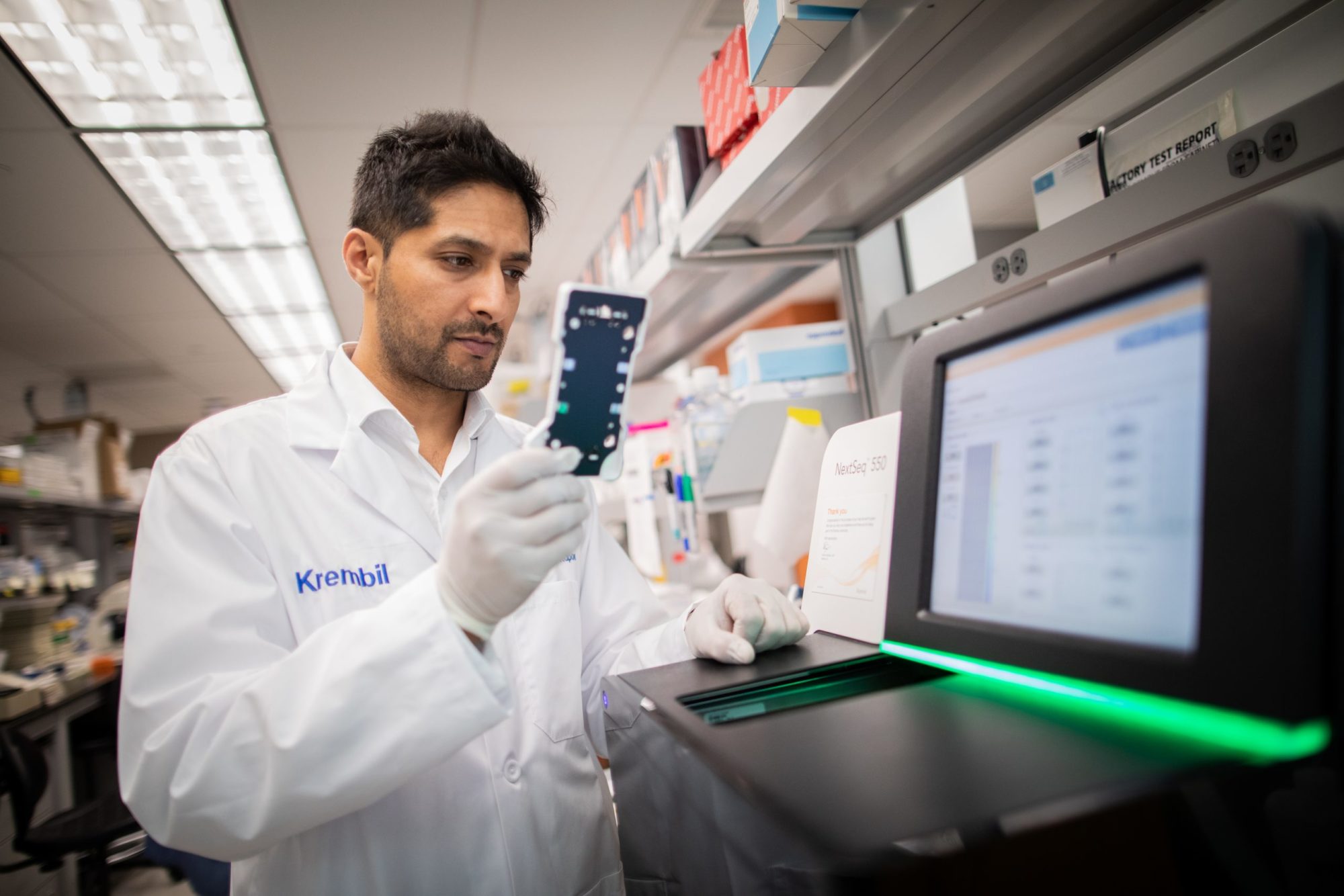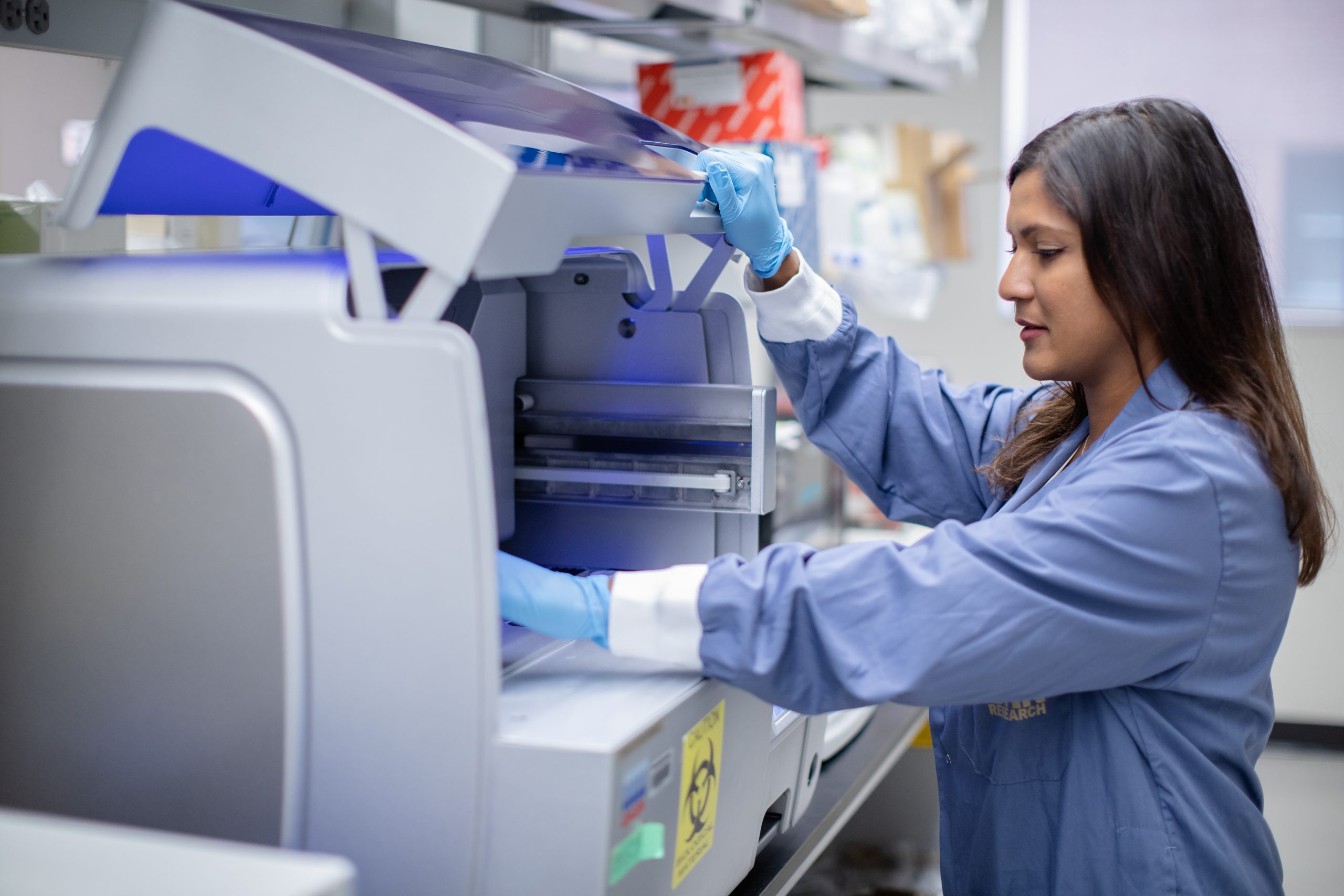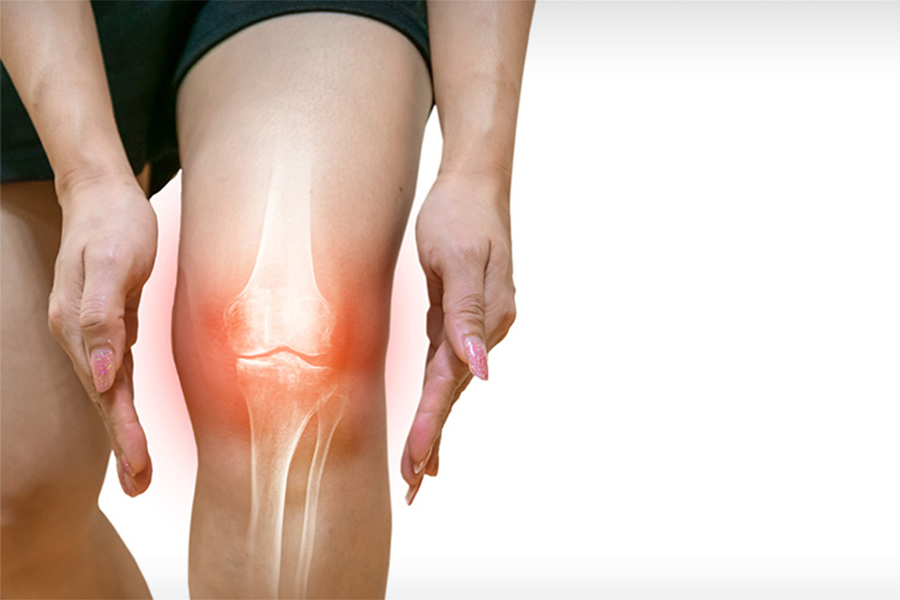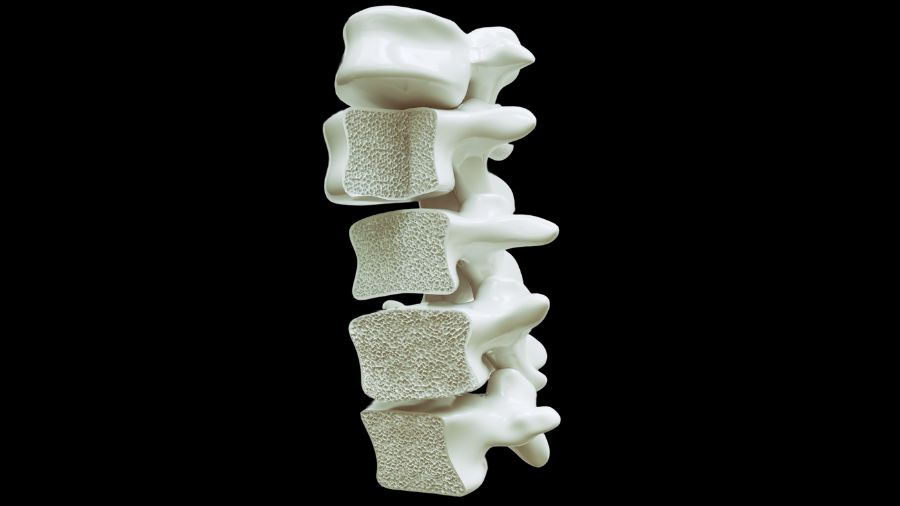
Scientists and orthopedic surgeons from Krembil and UHN’s Arthritis Program have identified new blood molecules in patients with early knee osteoarthritis, bringing them one step closer to creating a specific diagnostic test for osteoarthritis.
Early detection means the opportunity for treatment before irreversible damage occurs.
“We have just moved closer to our goal of developing a diagnostic test for detecting early-stage osteoarthritis,” said Dr. Mohit Kapoor, Research Director of the UHN Arthritis Program.
“If you have specific and sensitive biomarkers that can be detected early on in the disease process, you have more options for treatment, which can lead to better outcomes, says Dr. Amanda Ali, a former postdoctoral fellow in Dr. Kapoor’s research group and lead author of this study”
The study, published in Osteoarthritis and Cartilage, detected an early signal in the circulation of 91 patients with knee osteoarthritis using a highly sensitive technique called next generation sequencing. The test can detect molecules, called microRNAs, that are found in the blood and joint tissues and control over 60% of the genes in our body.

Dr. Kapoor and his team have been granted one patent and have also filed for an additional patent on the unique combination of identified blood microRNAs.
About five million Canadians live with OA which is characterized by a breakdown of the protective cartilage found in the body’s spine, hand, knee and hip joints. It lurks in many more, who may not yet feel its telltale signs: pain or stiffness in the joints, swelling and crackling sounds.
By the time there is a diagnosis through X-ray or MRI, the disease has progressed, and the loss of mobility may eventually demand replacement of a hip or knee. There is no way to reverse its damages and treatments only ease the pain. With a blood-based diagnostic testing, the disease can be detected in earlier stages when opportunities for prevention still exist.
This breakthrough was advanced by donors to the Campaign to Cure Arthritis whose gifts have funded the development of UHN’s arthritis biospecimen biobank, one of the world’s largest, with some 150,000 tissue and fluid samples. Blood panels were processed on equipment acquired through philanthropy. The study was also funded by the Krembil Foundation and Canadian Institute of Health Research.
To learn more, you can read the original study.


